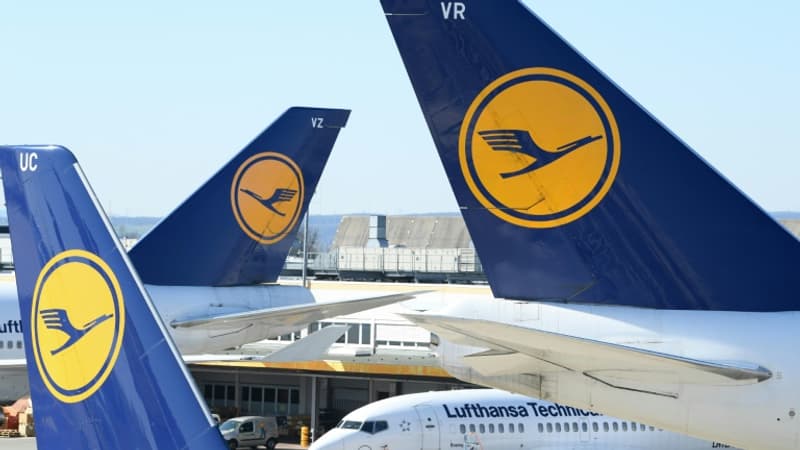Airline giant Lufthansa would have to consume half of Germany’s electricity output to fly its entire fleet on synthetic fuel, its boss said Monday, illustrating the complicated challenge of reducing emissions from air travel.
Lufthansa, Europe’s largest airline, “would need around half of Germany’s electricity to convert it into synthetic fuel,” estimated Carsten Spohr, the group’s CEO, during a national aviation conference in Hamburg (north).
But neither the Federal Minister of Economy, Robert Habeck (Greens), nor the Federal Network Agency “does not give me that amount of energy,” he added.
Synthetic fuels or e-fuels, which combine hydrogen – produced from carbon-free sources such as renewable energies – and CO2 captured in the air or industrial fumes, constitute one of the ways to decarbonize the aviation sector.
Produce “abroad”
However, the process requires the production of a large amount of green electricity, which Germany does not have, says the head of Lufthansa.
Since it has not been brought to an industrial scale, this fuel remains much more expensive than kerosene of fossil origin.
Therefore, Carsten Spohr finds it “realistic” to produce this synthetic fuel “abroad, where wind or solar energy is available in practically unlimited quantities,” he added, without naming any specific country.
This path will be “long, but it is the right one,” Carsten Spohr said convinced.
Aviation accounts for 2 to 3% of global greenhouse gas emissions.
However, synthetic fuel should remain a transitional technology, according to manufacturers in the sector, who are already working on the next stage of decarbonization with planes that fly with hydrogen.
The aircraft manufacturer Airbus is developing technologies that should allow the first hydrogen-powered aircraft to be launched in 2035, probably for short-haul routes.
Source: BFM TV


